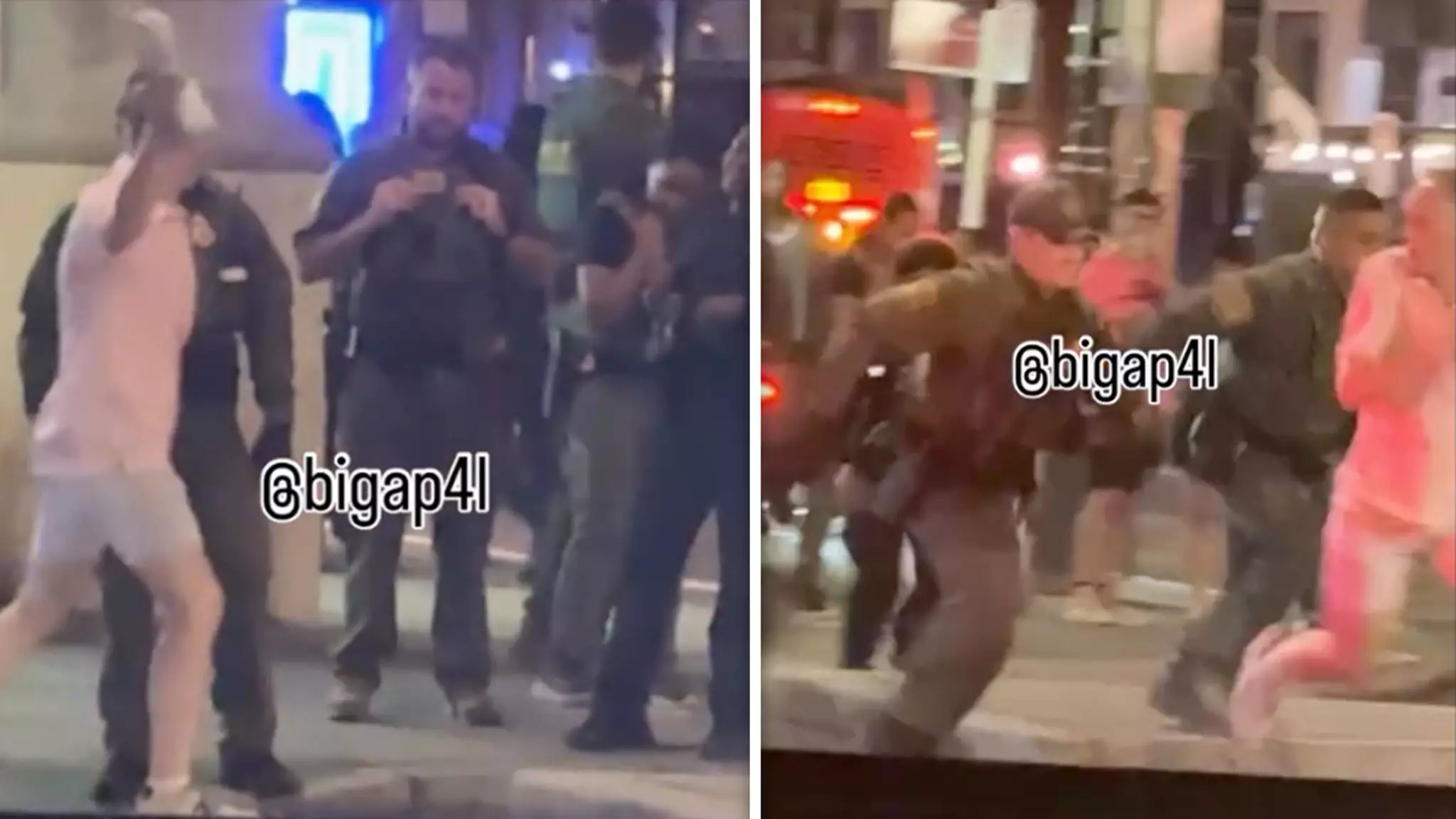Recent incidents in Washington, D.C., underscore a growing disconnect between civilians and federal authorities. An event involving a man, identified as Sean Charles Dunn, highlights a broader societal tension—where frustration with government actions spills over into direct, often provocatively humorous, confrontations. This situation exemplifies the urgent need to examine how public trust in law enforcement has deteriorated, and whether traditional authority models are equipped to handle citizen discontent in the modern era.
The fact that Dunn, a former DOJ trial attorney, responded with a sandwich launched at a law enforcement officer symbolizes more than just juvenile defiance; it acts as a metaphor for the perceived disconnect between police institutions and the communities they serve. The escalation from verbal hostility—calling officers “fascists” and expressing disdain for their presence—to an outright physical act reveals underlying fractures in civic discourse. It’s not merely about a sandwich; it’s about the symbolic struggle over authority, legitimacy, and personal agency in a society increasingly skeptical of officialdom.
The Role of Power and Provocation
One cannot ignore the power dynamics playing out in this encounter. The act of throwing a sandwich may seem trivial but signifies a deeper refusal to accept institutional authority. Dunn’s actions can be read as a form of protest—albeit a childish one—against the perceived overreach of federal agencies. Such gestures often serve as outlets for frustration in a climate where citizens feel unheard or marginalized.
Despite the humorous veneer, this incident raises serious questions about the appropriateness and safety of law enforcement responses. The police, under political pressure and public scrutiny, are often caught between enforcing order and maintaining restraint. Yet, the narrative surrounding this confrontation fuels a narrative of defiance that challenges police authority in tangible ways, complicating efforts to foster mutual respect.
The Politics of Public Spats and Their Implications
Politicians and public figures often shape the discourse around these conflicts. In this case, figures like U.S. Attorney Jeanine Pirro publicly rally around law enforcement, emphasizing that officers should not be subjected to violence or disrespect. This stance, while commendable in its intent, risks oversimplifying complex societal issues. Is it enough to condemn individual acts without addressing the systemic causes that foster distrust?
The broader political climate, especially with moves like deploying federal agents to D.C., intensifies these clashes. Such policies, especially when perceived as heavy-handed or politically motivated, exacerbate the cycle of confrontation. The incident involving Dunn is just one manifestation of a society grappling with authority, rights, and the limits of civil disobedience. It calls on leaders and communities alike to reconsider how they manage conflict and whether they are truly listening to the voices of dissent.
Episodes like these serve as wake-up calls—reminding us that civility and mutual respect must be prioritized over theatrical demonstrations. Challenging authority is a fundamental part of democracy, but how it is expressed and managed ultimately determines whether society progresses or devolves into chaos.

